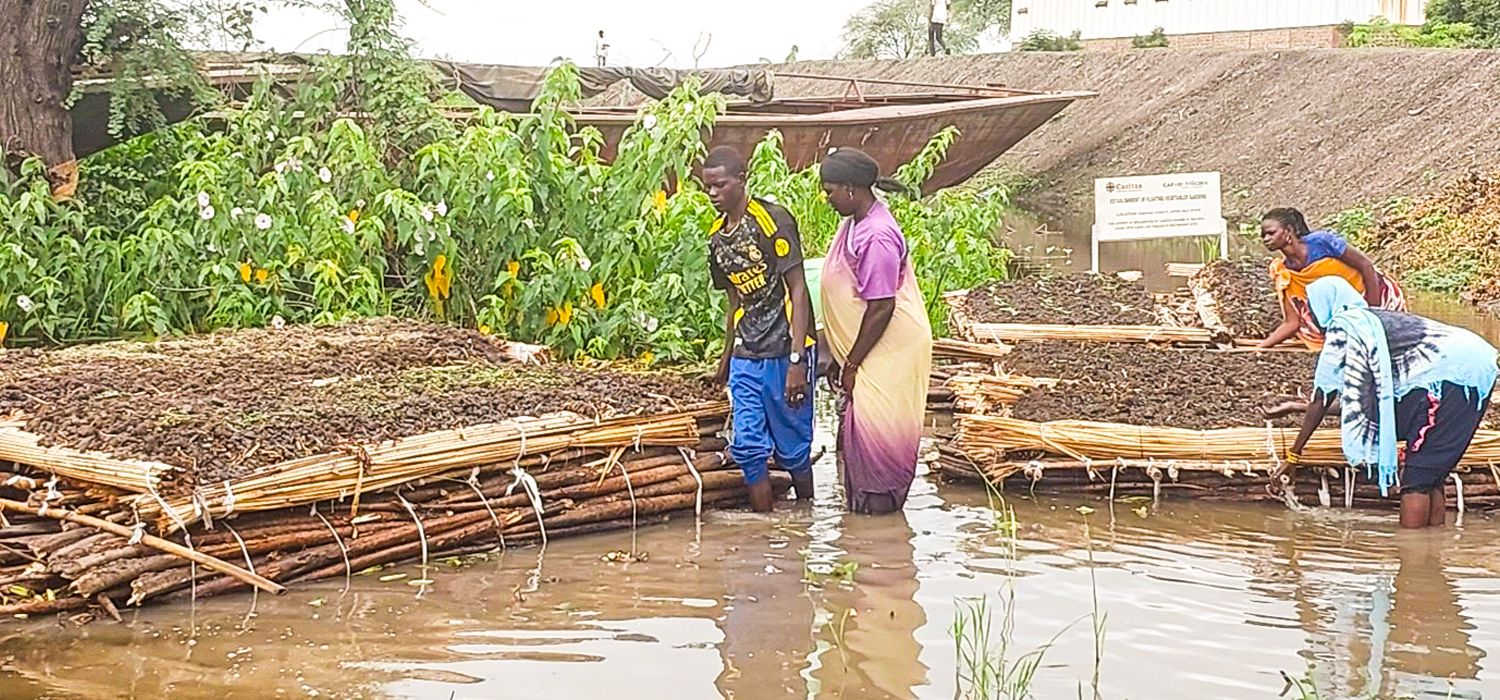 Stories
Stories
September 24, 2025 • 2 min read
Communities in Fashoda County, Upper Nile State, have long faced repeated crop losses due to seasonal floods along the Nile River. Through the UKAID-funded THRIVE project, residents have established floating vegetable gardens using locally available materials, ensuring food production during flood periods. Early success inspired additional farmers to adopt the approach independently, expanding its reach and impact. The initiative is now safeguarding livelihoods, increasing household income, and fostering community resilience in one of South Sudan’s most flood-prone areas.
Fashoda County is highly vulnerable to climate shocks, with settlements located along the Nile River and on low-lying plains. Seasonal and flash floods destroy crops, undermine food security, and exacerbate malnutrition for communities already displaced by conflict and economic hardship. In this challenging environment, innovative solutions for climate adaptation are essential to sustain livelihoods and reduce dependence on humanitarian aid.
Introducing Floating Gardens
To address recurring crop failure, the THRIVE project, through GOAL, in collaboration with CAFOD and the Caritas Diocese of Malakal, introduced floating gardens. These gardens are constructed from locally available materials, including bamboo, reeds, water hyacinth, and lightweight wood, which allows for vegetable cultivation on floodwaters. Across three Payams (sub-county) and six Bomas (villages), THRIVE trained residents, identified participants, and established six gardens, each approximately 2 meters by 15 meters, with 90 participants (65 men and 25 women). Vegetables grown include tomatoes, onions, collards, okra, jute mallow, and Amaranthus. Communities supplied local materials while the project provided seeds and tools, ensuring both ownership and sustainability.
Scaling Up and Community Adoption
The initial gardens demonstrated tangible results, motivating additional farmers to replicate the approach. In Dier Kodok Boma, Kodok Payam, 40 farmers (14 men, 26 women) formed groups, sought training, and established their own floating gardens. They now grow vegetables for household consumption and market sales, reinforcing income generation and food security. This organic scale-up reflects strong community ownership and highlights the potential for replication across the county.

Voices of Change
Julia Othow, a group leader in Kodok, shared her experience: “When we were first trained to establish and manage floating vegetable gardens, we had never seen anything like it and doubted it would help. After training by our livelihoods officer, Alfred Kwajkwan, we sowed different seeds on top of the floating beds. In just 20 days, we harvested a variety of vegetables. The method is low-cost, uses materials available in Kodok, and is easy to maintain, exactly what we need during floods driven by climate change.” She added, “This garden brings hope back to my life. Even when the waters rise, I can still feed my family.”
Alfred Kwajkwan, a Livelihood Officer, noted: “Floating gardens changed everything. They’re durable, low-cost, and built with local materials, so annual maintenance is minimal. High humidity reduces the need for irrigation, and production can continue almost year-round. This is a practical, community-led way to adapt to climate change, strengthen food security, and boost incomes.”
